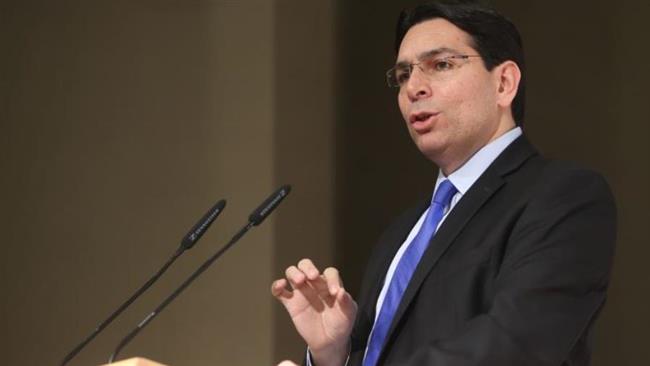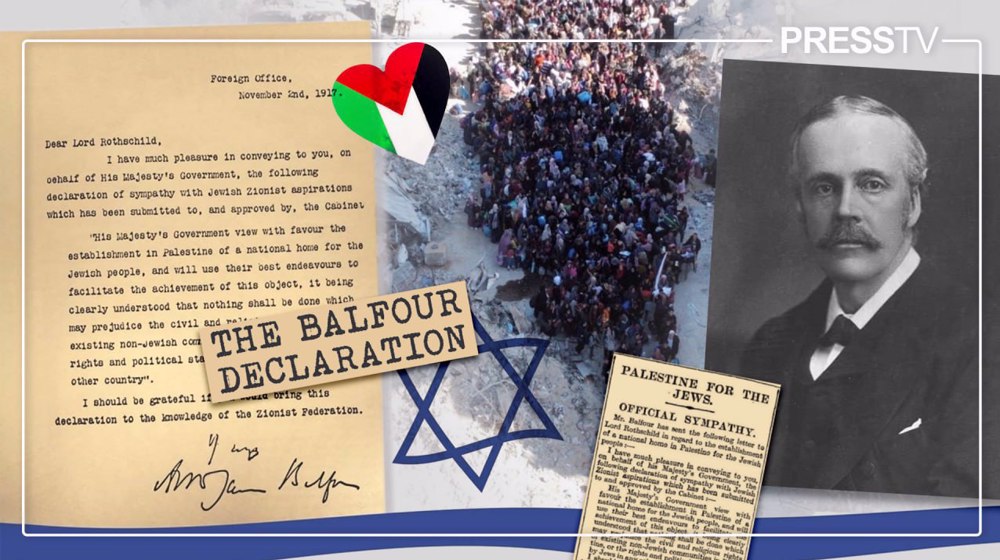Israel’s UN envoy owns up to ties with dozen Arab states
Israeli Ambassador to the United Nations Danny Danon has admitted that Tel Aviv has ties with “a dozen” Arab countries despite their refusal to officially recognize the Israeli regime.
“They still do not vote with us, but I can say that we have a relationship with them,” Danon told the Israeli news website Ynet on Monday, adding that those Muslim and Arab countries “understand the potential of relations with Israel.”
The revelation came as Saudi Arabia has been rumored to have formed an alliance with Israel in a bid to fend off Iran’s growing influence in the Middle East.
On November 14, Lebanon’s al-Akhbar daily published a secret undated letter from Saudi Foreign Minister Adel al-Jubeir to Crown Prince Mohammed bin Salman that puts forward a plan to normalize ties with Israel despite “risks” of a public backlash.
“I have the honor to submit to you the draft of the plan to establish relations between the kingdom and the State of Israel, based on the strategic partnership agreement with the United States of America, which was discussed with the secretary of state,” the letter reads.
Jubeir referred to Israel as a “state” while Saudi Arabia, along with other Arab League member countries, does not formally recognize the occupying entity.
However, in an interview with the Egyptian CBC television network, the Saudi foreign minister denied that his country is getting closer to Israel, saying, “There are no relations between Saudi Arabia and Israel.”
Later on November 19, Israeli Energy Minister Yuval Steinitz for the first time revealed that Tel Aviv has had covert contacts with Saudi Arabia.
“We have ties that are indeed partly covert with many Muslim and Arab countries, and usually [we are] the party that is not ashamed,” Steinitz said in an interview on Army Radio.
He added that Saudi Arabia was the side that was interested in hiding its ties with Israel, though Tel Aviv had no problem with this.
A report published in June revealed that Saudi Arabia and the Israeli regime were in clandestine talks to establish official economic relations for the first time since the entity was created on the Palestinian territories some 69 years ago.
The Times, citing unnamed Arab and American sources, said in the report that forming economic connections between the two, which would be gradual and step by step, could begin by allowing Israeli companies to open shops in the Arab kingdom, or granting El Al Israel Airlines Ltd. permission to fly over Saudi airspace.
Iran among top nuclear technology countries: AEOI chief
Democrats 'risk losing' election for backing Israeli war on Gaza, Lebanon: US journalist
Protesters remove busts of Israel's first president from Manchester Univ.
VIDEO | Hezbollah drones
US involvement in Israel’s 'regional war' unconstitutional, lawmakers tell Biden
107 years of Balfour Declaration that paved way for extermination of Palestinians
Hezbollah strikes Israeli military base near Tel Aviv
Palestinian media rights group condemns killing of two journalists by Israel













 This makes it easy to access the Press TV website
This makes it easy to access the Press TV website